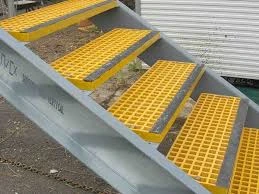
-
 Afrikaans
Afrikaans -
 Albanian
Albanian -
 Amharic
Amharic -
 Arabic
Arabic -
 Armenian
Armenian -
 Azerbaijani
Azerbaijani -
 Basque
Basque -
 Belarusian
Belarusian -
 Bengali
Bengali -
 Bosnian
Bosnian -
 Bulgarian
Bulgarian -
 Catalan
Catalan -
 Cebuano
Cebuano -
 China
China -
 China (Taiwan)
China (Taiwan) -
 Corsican
Corsican -
 Croatian
Croatian -
 Czech
Czech -
 Danish
Danish -
 Dutch
Dutch -
 English
English -
 Esperanto
Esperanto -
 Estonian
Estonian -
 Finnish
Finnish -
 French
French -
 Frisian
Frisian -
 Galician
Galician -
 Georgian
Georgian -
 German
German -
 Greek
Greek -
 Gujarati
Gujarati -
 Haitian Creole
Haitian Creole -
 hausa
hausa -
 hawaiian
hawaiian -
 Hebrew
Hebrew -
 Hindi
Hindi -
 Miao
Miao -
 Hungarian
Hungarian -
 Icelandic
Icelandic -
 igbo
igbo -
 Indonesian
Indonesian -
 irish
irish -
 Italian
Italian -
 Japanese
Japanese -
 Javanese
Javanese -
 Kannada
Kannada -
 kazakh
kazakh -
 Khmer
Khmer -
 Rwandese
Rwandese -
 Korean
Korean -
 Kurdish
Kurdish -
 Kyrgyz
Kyrgyz -
 Lao
Lao -
 Latin
Latin -
 Latvian
Latvian -
 Lithuanian
Lithuanian -
 Luxembourgish
Luxembourgish -
 Macedonian
Macedonian -
 Malgashi
Malgashi -
 Malay
Malay -
 Malayalam
Malayalam -
 Maltese
Maltese -
 Maori
Maori -
 Marathi
Marathi -
 Mongolian
Mongolian -
 Myanmar
Myanmar -
 Nepali
Nepali -
 Norwegian
Norwegian -
 Norwegian
Norwegian -
 Occitan
Occitan -
 Pashto
Pashto -
 Persian
Persian -
 Polish
Polish -
 Portuguese
Portuguese -
 Punjabi
Punjabi -
 Romanian
Romanian -
 Russian
Russian -
 Samoan
Samoan -
 Scottish Gaelic
Scottish Gaelic -
 Serbian
Serbian -
 Sesotho
Sesotho -
 Shona
Shona -
 Sindhi
Sindhi -
 Sinhala
Sinhala -
 Slovak
Slovak -
 Slovenian
Slovenian -
 Somali
Somali -
 Spanish
Spanish -
 Sundanese
Sundanese -
 Swahili
Swahili -
 Swedish
Swedish -
 Tagalog
Tagalog -
 Tajik
Tajik -
 Tamil
Tamil -
 Tatar
Tatar -
 Telugu
Telugu -
 Thai
Thai -
 Turkish
Turkish -
 Turkmen
Turkmen -
 Ukrainian
Ukrainian -
 Urdu
Urdu -
 Uighur
Uighur -
 Uzbek
Uzbek -
 Vietnamese
Vietnamese -
 Welsh
Welsh -
 Bantu
Bantu -
 Yiddish
Yiddish -
 Yoruba
Yoruba -
 Zulu
Zulu
frp storage tank
Understanding FRP Storage Tanks Advantages and Applications
FRP (Fiber Reinforced Plastic) storage tanks have become increasingly popular in various industries due to their unique properties and numerous advantages over traditional storage tanks made from materials like steel and concrete. This article will delve into the fundamentals of FRP storage tanks, their benefits, applications, and why they are becoming a preferred choice in many settings.
What are FRP Storage Tanks?
FRP storage tanks are composite tanks made from a polymer matrix reinforced with fibers, typically glass or carbon fibers. The composite structure gives these tanks enhanced strength and durability, while also being lightweight compared to their metal or concrete counterparts. Manufacturing processes like filament winding and pultrusion allow for the design of tanks in various shapes and sizes, tailored for specific applications.
Advantages of FRP Storage Tanks
1. Corrosion Resistance One of the most significant advantages of FRP tanks is their resistance to corrosion. Unlike steel tanks, which can rust when exposed to moisture and certain chemicals, FRP tanks are made from materials that resist chemical attack. This property extends the lifespan of the tanks, particularly in industries that involve aggressive chemicals and harsh environmental conditions.
2. Weight Efficiency FRP tanks are considerably lighter than traditional metal or concrete tanks. This lightness not only makes them easier to transport and install but also reduces the structural load on supporting foundations. The reduced weight can lead to cost savings in installation and maintenance.
3. Customization The flexibility in design and manufacturing of FRP tanks allows for a high degree of customization. They can be produced in various shapes, sizes, and configurations to meet specific storage needs. This tailored approach ensures optimal performance for the intended application, whether it be for water, chemicals, or other liquids.
frp storage tank

4. Thermal Insulation FRP materials have good thermal insulation properties, which help in maintaining the temperature of the stored liquids. This quality is particularly important for applications where temperature stability is crucial, like in the storage of certain chemicals and food products.
5. Low Maintenance FRP tanks require minimal maintenance compared to metallic tanks. The inert nature of the materials used in FRP construction means there are fewer chances of scaling, rusting, or other forms of wear and tear, leading to lower operational costs over time.
6. Cost-Effectiveness While the initial investment for FRP storage tanks may be higher than that of traditional materials, the long-term benefits like reduced maintenance, longer lifespan, and lower operational costs often justify the expense.
Applications of FRP Storage Tanks
FRP storage tanks are utilized across a wide range of industries
- Water Treatment They are commonly used in water treatment facilities for storing potable water and various chemicals needed in the water purification process. - Chemical Storage The chemical resistance of FRP makes it ideal for storing hazardous and corrosive materials, such as acids, solvents, and other chemicals used in industrial processes. - Oil and Gas In the oil and gas industry, FRP tanks serve in the storage of both production and waste fluids, providing a durable solution that can withstand harsh environments. - Food and Beverage FRP tanks are also used to store food-grade products due to their ability to maintain hygiene and prevent contamination. - Agriculture In agriculture, FRP tanks can store fertilizers, pesticides, and water needed for irrigation.
Conclusion
In conclusion, FRP storage tanks represent a modern solution to various storage needs, combining strength, durability, and flexibility. Their resistance to corrosion, lightweight nature, thermal insulation, and low maintenance requirements make them a superior choice in many industrial applications. As industries continue to evolve and face new challenges, the adoption of innovative materials like FRP will undoubtedly play a crucial role in enhancing operational efficiency and sustainability.









